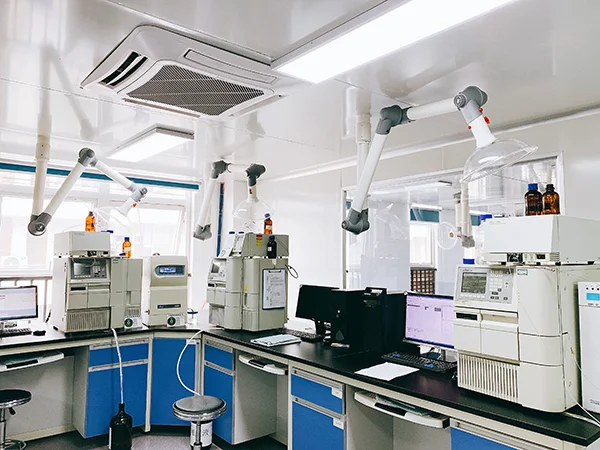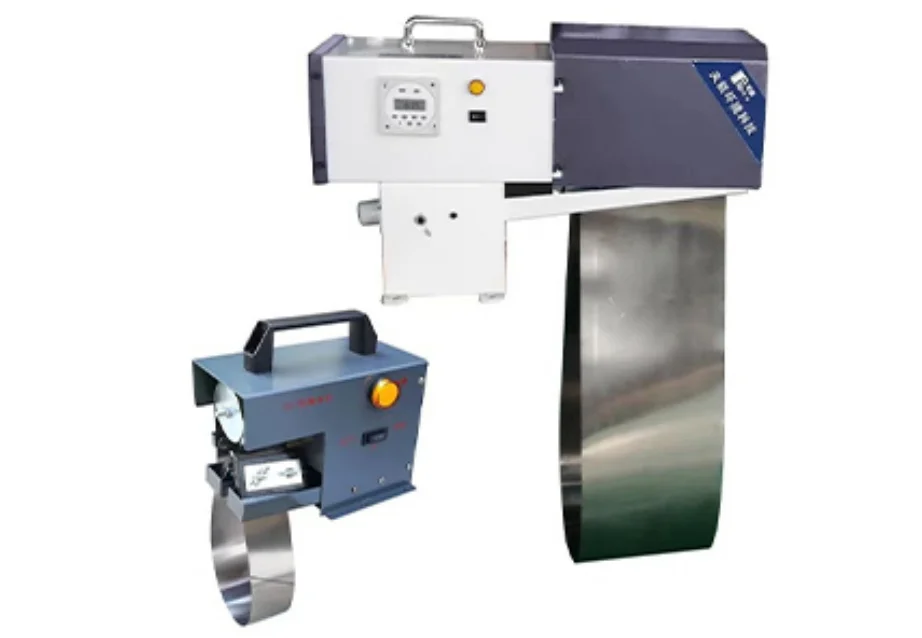Топливое масло служит жизненной кровью для тяжелой промышленной техники и огромных морских судов. Но этот важный источник энергии редко остается в идеальном состоянии. Как нежелательный скрытый, влага просачивается во время перевозки. Толстый шлам постепенно накапливается в контейнерах для хранения. Крошечные абразивные частицы тег вдоль невидимых. Эти проблемные вещества медленно ухудшают качество топлива, приводя к множеству проблем – коррозия атакует металлические части, фильтры заблокируются пучкой, инжекторы становятся менее точными. Для критически важного оборудования надлежащая очистка топливного масла ’ t только что рекомендовал – это’ С абсолютно жизненно важным. Методически устраняя эти вредные элементы, вы защищаете свои машины’ эксплуатационный срок службы при значительном снижении дорогостоящих затрат на ремонт со временем.

Как очистка максимизирует производительность оборудования
Очистка топливного масла идет далеко за рамки простой уборки – оно обновляет ваше топливо до статуса премиум-класса. При удалении загрязнителей сжигание становится невероятно эффективным. Двигатели работают практически без углеродных отложений. Теплопередача резко улучшается. Потребление топлива значительно снижается. Выбросы заметно снижаются. Для объектов, использующих тяжелое топливное масло (HFO), передовые решения для очистки от Ou Run Technology Co., Ltd. обеспечивают трансформационные результаты. Они обеспечивают полное соблюдение экологических правил, максимизируя при этом каждый кусок энергии из вашего топлива.
Основные различия между очисткой топлива и смазочного масла
Уникальные аспекты очистки топливного масла
Топливое масло имеет совершенно разные свойства по сравнению с смазочным маслом. Его толстая, клеуподобная консистенция заставляет его привлекать воду и грязь во время хранения и обработки. Соединения серы еще более осложняют процесс очистки. Для решения этих проблем очистка топливового масла использует высокоскоростную центробежную силу для удаления воды наряду с многоступенчатой фильтрацией для захвата твердых частиц. Пренебрегите этими важными шагами, и вы’ ll столкнуться с двигателями, которые борются с системами, заполненными шламом, и котлами, работающими нерегулярно.
Специальные требования к обработке смазочных масел
Смазочное масло имеет особую роль – Он действует как защитный слой между движущимися компонентами под сильным давлением и теплом. Его основные загрязнители происходят внутри – крошечные металлические фрагменты от износа двигателя и разрушенных химических добавок. Методы очистки, такие как вакуумная сушка и ультратонкая фильтрация, поддерживают масло; Специально сформулированные характеристики. Преимущества? Меньше износа и значительно более длительный срок службы.
Основные компоненты успешной очистки топливного масла
Центробежное разделение: движущая сила очистки
Представьте себе надзаряженный джакузи, предназначенный специально для очистки топлива. Центробежные сепараторы генерируют огромную мощность вращения, которая бросает более тяжелые примеси, такие как вода и шлам, в сторону, сохраняя чистое топливо в центре. Этот подход обеспечивает быструю и мощную обработку с отличными результатами.
Однако только скорость не’ t гарантирует успех. Два ключевых элемента влияют на производительность сепаратора: скорость вращения и точное управление температурой. Огрев топлива делает его проще течь, позволяя центрифуге работать при максимальной эффективности. Современные системы из Оурun Technology Co., Ltd. улучшить это еще больше с помощью умной технологии, которая постоянно тонко настраивает настройки для получения лучших результатов.
Фильтрация: критическая окончательная контрольная точка
Фильтрация действует как тщательный инспектор качества в очистке топливного масла. Прогрессивный устройства фильтра систематически захватывать частицы от видимых кусков до микроскопических пятен. Системы высшего уровня включают технологию слияния, которая объединяет небольшие капли воды в более крупные для простой извлечения.
Что’ Ключ к надежной работе? Постоянное обслуживание. Фильтры, которые’ t заменяются регулярно превращаются из защитных устройств в проблемные блокировки. Строгая процедура технического обслуживания гарантирует, что ваша установка очистки всегда работает при максимальной мощности.
В сочетании центробежное действие и комплексная фильтрация образуют непревзойденную команду, которая производит топливо, отвечающее самым строгим требованиям качества – чистый, высокопроизводительный и нежный на оборудовании.
Инновационные технологии трансформируют Чистка топлива
Интеллектуальная автоматизация: умное ядро современных систем
Последние очистительные установки практически работают сами. Саморегулирующиеся системы управления постоянно отслеживают и мгновенно модифицируют жизненно важные измерения, такие как уровень тепла и поток топлива. Некоторые версии даже имеют функции автоматической очистки, которые чувствуют накопление грязи и начинают процедуры очистки самостоятельно.
Эта умная автоматизация устраняет человеческие ошибки, сохраняя при этом операции беспрепятственно. Больше нет остановок для уборки. Нет шансов на возвращение полуобработанного топлива в циркуляцию. Просто надежная, круглосуточная очистка.
Усовершенствованный мониторинг: непрерывный надзор за оптимальной функцией
Современные датчики дают беспрецедентное представление о процессе очистки. Тепловые мониторы поддерживают идеальную консистенцию топлива для разделения. Давление измерители выявляют проблемы потока на самой ранней стадии. Самые передовые модели даже используют технологию прогнозирования для обнаружения возможных сбоев, прежде чем они создают отключения.
Подумайте о круглосуточном экспертном надзоре, который предсказывает проблемы до их возникновения. Это’ с преимуществом систем текущего мониторинга в установках очистки топливного масла.
Выбор идеального оборудования для очистки топливного масла
Выбор правильной системы очистки требует тщательной оценки нескольких важных аспектов. Начните с анализа свойств топлива – более плотные, тяжелые масла требуют более мощных возможностей очистки. Затем изучите свои эксплуатационные потребности, чтобы подтвердить, что система может управлять максимальными нагрузками без потерь энергии от чрезмерных мощностей.
Метрики производительности имеют решающее значение. Ищите системы, которые регулярно достигают или превосходят промышленные стандарты для удаления примесей. Удобные для пользователя функции, такие как автоматическая чистка и саморегулирующиеся элементы управления, могут значительно уменьшить сложности с эксплуатацией. Легкий доступ к обслуживанию и доступность компонентов также должны учитывать ваш выбор.
Соблюдение экологических стандартов сейчас крайне важно. Подтвердить, что любая потенциальная система соответствует существующим правилам регулирования выбросов и отходов. Хотя первоначальная цена имеет значение, наиболее разумные покупки учитывают текущие эксплуатационные затраты и возможную экономию от улучшения экономии топлива и снижения потребностей в техническом обслуживании.

Будущее технологий очистки топлива
Последние системы очистки сочетают множество технологий в творческих комбинациях. Гибридные конфигурации интегрируют центробежное разделение с микроскопической фильтрацией для беспрецедентной устранения загрязнителей. Системы, подключенные к Интернету, предлагают прямые подачи данных и удаленное устранение неисправностей, меняя обслуживание с исправления позже на предотвращение сначала.
Экологическая эксплуатация теперь возглавляет соображения дизайна. Энергоэффективное функционирование снижает потребности в электроэнергии. Управление побочными продуктами превращает проблемы удаления отходов в потенциальные активы. Для прогрессивных операций эти достижения представляют собой больше, чем просто улучшения – Они’ re необходимые инструменты для сохранения конкурентоспособности в сегодняшнем’ с строго регулируемой, ориентированной на эффективность деловой среды.
Часто задаваемые вопросы
К1: Почему это’ Готово ли топливо поставщика к немедленному использованию?
Ответ: Топливо собирает вредные примеси во время хранения и транспортировки. Эти скрытые опасности – вода, вызывающая ржавую, частицы, износящие компоненты, шлам, блокирующий проходы – сделать очистку необходимой перед использованием для защиты вашего оборудования и обеспечения надлежащего функционирования.
Второй квартал: Когда появится повышение эффективности?
Ответ: Улучшения появляются почти мгновенно. Очищенное топливо горит более полностью, обычно демонстрируя четкое повышение эффективности во время первоначальной эксплуатации. Оборудование работает более плавно, потребности в техническом обслуживании уменьшаются, а потребление топлива заметно снижается.
К3: Чем очистка топливного масла отличается от обработки смазочного масла?
Ответ: Хотя оба процесса удаляют примеси, они нацелены на различные загрязнители. Топливое масло имеет дело с внешними захватчиками, такими как вода и грязь. Смазочное масло ручки внутренних побочных продуктов – металлический износ мусора и разложение добавок. Каждый из них требует своего подхода к лечению для получения оптимальных результатов.






